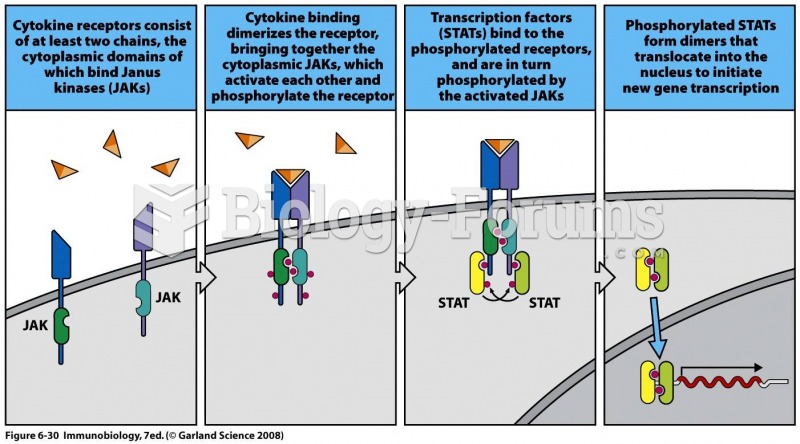|
|
|
Each year in the United States, there are approximately six million pregnancies. This means that at any one time, about 4% of women in the United States are pregnant.
There are over 65,000 known species of protozoa. About 10,000 species are parasitic.
The newest statin drug, rosuvastatin, has been called a superstatin because it appears to reduce LDL cholesterol to a greater degree than the other approved statin drugs.
The most common childhood diseases include croup, chickenpox, ear infections, flu, pneumonia, ringworm, respiratory syncytial virus, scabies, head lice, and asthma.
Stevens-Johnson syndrome and Toxic Epidermal Necrolysis syndrome are life-threatening reactions that can result in death. Complications include permanent blindness, dry-eye syndrome, lung damage, photophobia, asthma, chronic obstructive pulmonary disease, permanent loss of nail beds, scarring of mucous membranes, arthritis, and chronic fatigue syndrome. Many patients' pores scar shut, causing them to retain heat.
 Major moons of Uranus in order of increasing distance (left to right), at their proper relative size
Major moons of Uranus in order of increasing distance (left to right), at their proper relative size
 Multiple-dose drug administration: drug A and drug B are administered every 12 hours; drug B reaches
Multiple-dose drug administration: drug A and drug B are administered every 12 hours; drug B reaches





